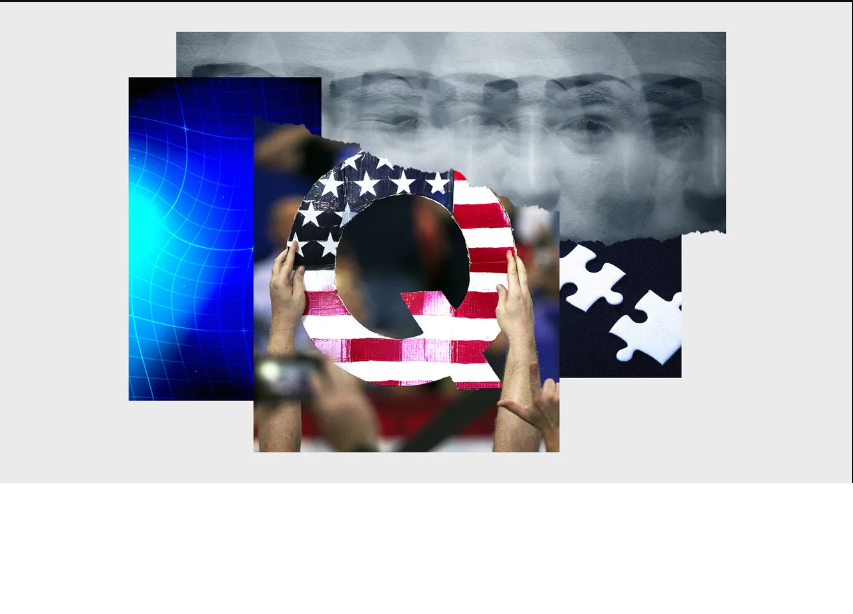
Unraveling QAnon’s Appeal in Gaming Communities
It’s always been about mysteries, puzzles, and immersive narratives in gaming. It’s no secret that gamers love intricate plots and enigmatic quests, because they want to solve puzzles, discover secrets, and discover new worlds. But the allure of mysteries in the digital world has changed lately. Far-right conspiracy theories like QAnon’s have shown how people love puzzles and hidden information and can use it to spread misinformation and dangerous beliefs. We’re looking at QAnon from the perspective of gaming, mysteries; the lure of QAnon’s, and what it’s really like.
The Appeal of Gaming Mysteries
A big reason why games and mysteries go hand in hand is the innate curiosity we have to see what’s out there. Myst, “The Witness,” and ”Firewatch” are games that draw players with their enigmatic storylines and challenging riddles. Games like that have been wildly popular with players for years. You get so much satisfaction and joy when you solve a complex puzzle that you can’t find anywhere else.
This sense of accomplishment is one of the reasons mystery-based games are so popular. They allow the player to explore and unravel stories at their own pace.
Also, mysteries get you into the gaming world, make you feel engaged, and you get emotionally invested in the story, the characters, and the resolution. They get closer to the game’s universe as they uncover clues and figure out the puzzles.
The Dark Side of Mystery
The early 2010s’ QAnon’s movement is a great example of how human fascination with mysteries can be exploited for bad. It’s about the belief that a secret cabal of elites controls the world and commits horrible crimes, mostly involving children, and they’re trying to make you think that way. Online forums have an anonymous user, “Q,” who posts cryptic messages, urging followers to decipher hidden meanings. As a result of QAnon’s enigmatic nature, its adherents feel like a part of a select group with hidden knowledge.
QAnon’s rise can be attributed to several factors,
Confirmation Bias: QAnon’s preys on confirmation bias, where individuals selectively perceive information that supports their existing beliefs. Adherents of the conspiracy theory interpret vague messages as confirmation of their preconceived notions.
In-Group Identity: QAnon’s fosters a sense of belonging among its followers. By solving cryptic messages and sharing their interpretations with fellow believers, they become part of a tight-knit community that shares a common purpose.
Followers eagerly await the next “Q drop” to create a sense of suspense and excitement, similar to the anticipation they feel while playing games.
Distrust of Mainstream Media: QAnon’s exploits the widespread distrust of mainstream media by positioning itself as the holder of the “real” information. This distrust can make followers more receptive to alternative narratives and conspiracy theories.
The Intersection of Gaming and QAnon
Surprisingly, the gaming community has not remained immune to the allure of QAnon’s. In some cases, QAnon conspiracies have infiltrated online gaming forums, where players discuss strategies, lore, and community events. This cross-pollination poses a unique challenge, as gaming platforms that value free speech and open discussion may inadvertently facilitate the spread of conspiracy theories.
One way in which gaming communities can become fertile ground for QAnon’s is through user-generated content. In games with built-in level or content creation tools, players can upload their own custom content. This provides an opportunity for QAnon adherents to create and distribute conspiracy-related material within the gaming environment, often hidden within complex puzzles or hidden secrets.
The Lure of Hidden Knowledge
The QAnon’s conspiracy theory taps into the fascination with hidden knowledge that is prevalent in both gaming and broader society. People are drawn to the idea of uncovering secrets, becoming privy to exclusive information, and gaining an edge over others. This allure extends beyond gaming, influencing the way individuals approach real-world information and news.
The challenge for gaming platforms is to strike a balance between allowing players the freedom to create and share content while keeping conspiracy theories out of the game. For that to happen, we need strong content moderation, community guidelines, and clear consequences for those who spread dangerous ideas on gaming platforms.
Educating Gamers on Critical Thinking
As QAnon’s infiltrates gaming communities, it’s important to promote critical thinking among players. Platforms can implement educational initiatives to help users distinguish between harmless mysteries and harmful conspiracies.
One approach is to integrate critical thinking lessons into the gaming experience. For example, Gaming Headsets: Top Choices for Every Game that can have in-game challenges making players think critically and tell truth from lies. A game with these educational elements can help gamers see conspiracies like QAnon better.
Conclusion
Video games have a lot in common with mysteries, puzzles, and immersive narratives. Gamers love uncovering hidden secrets and solving complex puzzles, but as QAnon’s shows, the same fascination with mysteries can be exploited for bad. In this conspiracy theory, enigmatic messages lure people into a world of misinformation, paranoia, and dangerous beliefs using enigmatic messages.
To mitigate the infiltration of QAnon into gaming communities, platforms and game developers must focus on robust content moderation and user education. By promoting critical thinking and discernment, gaming communities can strike a balance between the joy of solving in-game mysteries and the dangers of real-world conspiracies. The future of gaming hinges on the industry’s ability to harness the power of mysteries while protecting players from the dark allure of QAnon’s and similar conspiracy theories.